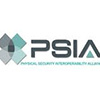
PSIA Introduces Access Control and Intrusion Detection Profiles to the Physical Security Industry
 The Physical Security Interoperability Alliance (PSIA) today announced the availability of its Access Control Profile and Intrusion Detection Profile as well as a tool for testing whether products conform to these profiles.
The Physical Security Interoperability Alliance (PSIA) today announced the availability of its Access Control Profile and Intrusion Detection Profile as well as a tool for testing whether products conform to these profiles.
These profiles will enable manufacturers to easily and quickly adopt PSIA specifications by complying with a smaller subset of interoperability requirements. The testing tool gives integrators and end users total confidence that products complying with each PSIA Profile will interoperate smoothly with each other.
“We’re excited to introduce the first working profiles and test tool to the physical security industry,” said David Bunzel, executive director, the PSIA. “These profiles will enable a very wide range of vendors to quickly and affordably comply with PSIA specifications and expand plug-and-play compatibility across the security ecosystem.”
Profiles are common tools in technology standards and address a particular use case within a rich standard or specification. The standard or specification is akin to a section in a library, covering every aspect of a subject; a profile would be the handful of books on a narrower, very specific topic. The PSIA Access Control and Intrusion Detection Profiles draw their data elements from the PSIA’s broader Area Control Specification.
“The PSIA’s Area Control specification is very deep and encompasses many combinations of security use cases,” said Larry Lien, chairman of the PSIA, and vice president of product management for Proximex, a Tyco International Company. “The profiles enable vendors with narrower use cases to easily comply with our specs and guarantee product interoperability.”
The Profiles Test Tool certifies that a product or system fully complies with either or both of the new profiles to ensure plug-and-play interoperability. Honeywell, Inovonics, and Kastle Systems are among the vendors who have used the Profiles Test Tool to test conformance with the Area Control and/or Intrusion Detection Profiles. Additional vendors are using the test tool and expect to announce conformant products soon.
The PSIA Profiles Test Tool encompasses two distinct testers that simulate both “host-side” systems as well as “device-side” systems for profiles compliance.
“Its’ simulation capabilities make the test tool invaluable in helping vendors test and validate their PSIA compliance throughout the design and development phases of a product,” said Neelendra Bhandari, engineering manager, Honeywell Security.
The PSIA Profiles Working Group includes Assa Abloy, HID Global, Honeywell, Ingersoll Rand/Schlage, Inovonics, Kastle Systems, Mercury Security, Proximex and UTC/Lenel. Kastle’s CTO and Executive Vice President, Mohammad Soleimani, chairs the group.
“Consultants, integrators and end users demand great certainty that products incorporating a specification will interoperate as promised and deliver the benefits they expect,” said Soleimani. “The Access Control Profile and the Intrusion Detection Profile, plus the test tool, deliver this confidence by virtually ensuring that two or more profiles, compliant-and-tested products, will work together flawlessly.”
“As usual for the PSIA, we had a tremendous group of companies leading our profiles development,” said Lien. “The profiles were not driven by one or two vendors, but reflect a broad range of industry requirements.”
“We’re very excited about how the profiles will increase the number of standards-based products in the physical security world,” said Bunzel. “Consultants, integrators and end-users will have many more choices for building powerful security solutions with lower total cost of ownership.”
Vendors, integrators, consultants and end users interested in the Access Control Profile, Intrusion Detection Profile and Profiles Test Tool should contact the PSIA for more information. Additional profiles will be released based on PSIA member input.